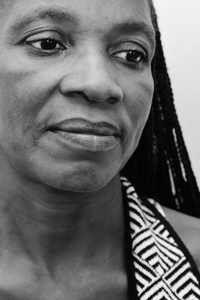Latest News Archive
Please select Category, Year, and then Month to display items
13 July 2023
|
Story André Damons
|
Photo André Damons
 Tebogo Machethe has recently been appointed Director for Innovation and Contracts in the Directorate of Research Development (DRD) at the University of the Free State (UFS).
Tebogo Machethe has recently been appointed Director for Innovation and Contracts in the Directorate of Research Development (DRD) at the University of the Free State (UFS).
The recently appointed Director for Innovation and Contracts in the Directorate of Research Development (DRD) at the University of the Free State (UFS) would like to see the university’s research outcome being adopted by industry and research output translating into commercial opportunities and more income.
Tebogo Machethe, who is experienced in managing intellectual property and commercialising technologies, amongst other
things, assumed his new role on 1 June and has felt right at home. He is looking forward to a good working relationship and environment with all the stakeholders.
“I would also like to see a huge drive wherein the commercialisation activities and income of the university from commercialisation of Intellectual Property (IP) increases from the research been undertaken. We will also be intensifying the entrepreneurial
drive at the university with a view to creating more entrepreneurship opportunities and skills for researchers and students. This will prepare our graduates to venture into entrepreneurship once they are done with their studies,” says Machethe.
According to him, South Africa now needs research that responds to the needs of society and provides solutions to society’s problems.
Intellectual property, commercialising technologies, contracts
Before joining the UFS, Machethe had been a Senior Manager: Technology Transfer at the University of Johannesburg for the past six years. He also spent some time at CIPRO (currently known as Companies and Intellectual Property Commission (CIPC) from 2004-2006 before joining Hahn & Hahn Inc as a Candidate patent attorney until late 2008. He then moved to the Council for Scientific and Industrial Research (CSIR): Materials Science and Manufacturing business unit in the Intellectual Property & Technology Transfer office.
“Most of my duties revolved around managing intellectual property, commercialising technologies and drafting and managing contracts only related to IP and Technology Transfer. My current duties have expanded to all forms of contracts and also
involvement in grant funding and other forms of funding,” says Machethe.
He says as a research office, the DRD exists in an eco-system wherein there are different role players. Through different role players, there is always a convergence of thinking and approaches which when all put together, puts the institution on a
path to achieve the goals of the university.
Fun facts about Tebogo Machethe
- He grew up in a small village called Ga-Raphahlelo, in Sekgosese, Mopani district, Limpopo. He is married with three children.
- When he is not pre-occupied with office matters, he tries to spend as much time with his family. He loves reading, running and cycling, which he often does.
- He has lived for the last two decades in Pretoria and is finding the Free State winter challenging. “It feels personal,” he says.
Mekondjo! National exhibition to reveal the courage, determination, repression and torture of PLAN
2014-05-21
|

Angelina Angula ex PLAN soldier injured during the 1978 Cassinga attack - photo by John Liebenberg. |
A pioneering exhibition by John Liebenberg and Christo Doherty is about to open on the Bloemfontein Campus. ‘Mekondjo! born in the struggle for Namibia’ gives South Africans their first insight into the lives of the men and women who fought against the SADF in the bush of Northern Namibia and Angola from 1966 – 1989.
This public exhibition presents eleven portraits of People’s Liberation Army veterans in the process of speaking about and coming to terms with their very different experiences in the Namibian War of Liberation.
When the People’s Liberation Army (PLAN) returned to Namibia after the UN-supervised elections of 1989, it had been fighting against South African rule for 23 years. Formed in 1966 as the armed wing of the South West African Peoples’ Organisation, PLAN had developed from a handful of poorly armed guerrillas to a sophisticated mechanised force. These soldiers fought alongside Angolan, Russian and Cuban soldiers against the SADF and UNITA. Since SWAPO’s election victory, the new government has mythologised the heroism of the armed struggle. The stories of the individual PLAN fighters’ experiences are only now being articulated, though.
Their stories are of great courage and determination against often impossible odds; but also of repression, torture, and disastrous decisions by the PLAN leadership.
The exhibition will be on display from Thursday 22 May to Friday 23 May for the duration of the Silence after Violence conference. The conference is hosted by the UFS Institute for Reconciliation and Social Justice and the Center for Holocaust Studies at the University of Vermont.
Date: Thursday 22 May and Friday 23 May 2014
Place: Centenary Complex, Reitz Hall, Bloemfontein Campus
Exhibition Introduction: Thursday 22 May, 14:00 – 15:30
Other viewing times: intermissions during the Silence after Violence programme
The public is welcome to attend.
* Spotlight photo: PLAN commissioner Nkrumah Mushelenga, Windhoek 2013 – photo by John Liebenberg